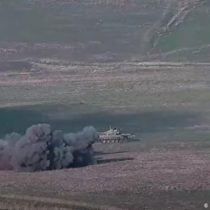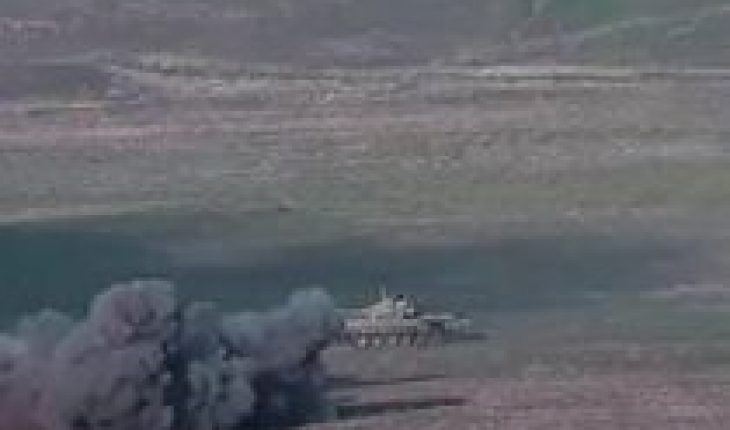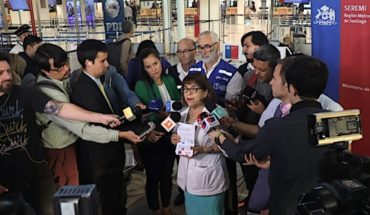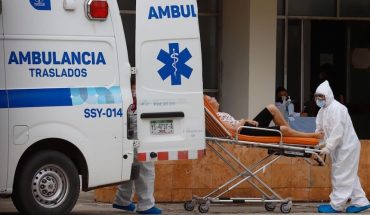
The Azerbaijani and Armenian Armed Forces intensified this Sunday (27.09.2020) the armed clash on the contact line of the Secessionist conflict zone Nagorno-Karabakh, after Baku (capital of Azerbaijan) launched a counter-offensive after ensuring that there have been attacks by the Armenian Army on its positions and civilians.
Several civilians and military personnel were killed in the fighting that broke out today in that region, Azerbaijan announced and Armenian separatists accused of triggering the clashes.
“There are dead and wounded among civilians and the military,” Azerbaijan’s presidency declared, while Karabakh’s public mediator said there were “civilian casualties” in the region’s population.
The Armenian Defense Ministry, which supports the separatists, indicated that two helicopters and three Azerbaijani drones were shot down. For its part, Azerbaijan stated in a statement that it had launched a “counter-offensive along the front line”, to “end military activities of the Armenian armed forces and ensure the safety of civilians”. According to the Azerbaijani Defense Minister, a single helicopter was shot down and its crew is safe.
Armenia decrees martial law
In response, the Government of Armenia decreed martial law on Sunday and a general mobilization in the face of escalating conflict with Azerbaijan in the Nagorno-Karabakh area.
“By a government resolution, martial law and general mobilization in the Republic of Armenia are declared,” Prime Minister Nikol Pashinián said in his official Facebook social media account. The representative urged military personnel to report to territorial barracks “for the sake of the homeland and victory.”
Russia calls for ceasefire
While the presidency of the separatist region of Nagorno-Karabakh decreed martial law and “general mobilization” in response to Azerbaijan’s offensive on Sunday, Russia called for an “immediate ceasefire” in the region.
“We called on the parties to immediately cease fire and enter into negotiations to stabilize the situation,” the Russian Foreign Ministry said in a statement, ingesting that “intense bombardments occurred along the line of contact on both sides.”
EU calls for return to negotiations
For his part, the President of the European Council, Charles Michel, urged Armenia and Azerbaijan to stop all military hostility and return to “no pre-conditions” negotiations on the Nagorno-Karabakh conflict zone.
“Reports of hostilities from the Nagorno-Karabakh conflict zone cause the most serious concern,” Michel said via his Twitter social media account.
The Belgian politician insisted that “military action must be stopped urgently, to prevent tension from increasing,” adding that “an immediate return to negotiations, without pre-conditions, is the only way forward.”
Turkey pledges “full support” to Azerbaijan
In addition, the Turkish Foreign Ministry has on Sunday promised “full support” to Azerbaijan in the armed conflict with Armenia triggered this morning on the borders of Nagorno-Karabakh. Through a statement from the Ministry, Turkey attributes to Armenia the rupture of the ceasefire signed between the two neighbouring countries in 1994, and since then violated many times, although today’s clashes are the most serious in years.
“We strongly condemn the Armenian attack, an obvious violation of international law that leads to the deaths of civilians. With this aggression, Armenia once again shows that it is the biggest obstacle to peace and stability in the area,” says the Foreign Note.
“We will be at Azerbaijan’s side in any way it wishes,” concludes Ankara’s communiqué, which maintains close political ties with the Caucasian republic, while still not establishing full diplomatic relations with Armenia.
The origin of the conflict
Nagorno-Karabakh is an Armenian-majority secessionist region of Azerbaijan supported by Yerevan (capital of Armenia). In the early 1990s, it was the scene of a conflict that left some 30,000 dead. Since then, azerbaijani authorities have wanted to return to their control, even if it is by force. Peace negotiations have been at an end for years.
At the end of the fighting, Armenian forces took control of the Karabakh and also occupied vast terriAzerbaijanis, which they call the “security strip,” to unite it with Armenia. Azerbaijan submits that the solution to the conflict with Armenia necessarily goes through the liberation of the occupied territories, a demand which has been supported by several UN Security Council resolutions.





